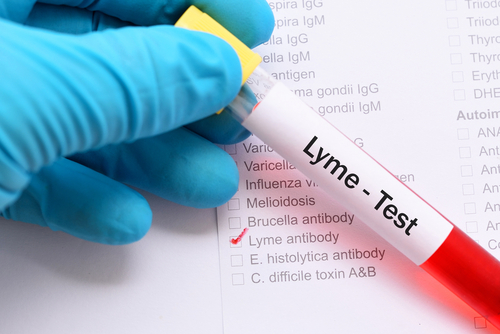About Serological Testing for Lyme Disease
Lyme disease testing is a large industry. Almost every major laboratory will test for the illness. As documented cases continue to increase over the years, more and more laboratories begin to realize that including Lyme testing is essential. There are a lot of clinical details about testing that paying customers might not be aware about. It’s important to be educated on the types of testing, the process, and of course the results.
Serology testing is often your physician's first step in properly diagnosing and treating you. A serology test (antibody test) is a blood test that detects antibodies. Antibodies are proteins in the blood that are an important response to an infection. The CDC recommends a two-tier testing process for Lyme disease. With this process both of the tests have to be positive in order for you to be considered to have Lyme disease.
The standard tests in the two-tier process are ELISA and The Western blot. ELISA is short for enzyme-linked immunosorbent assay. It detects the levels of antibodies against Borrelia burgdorferi in the blood or spinal fluid. The Western blot is the second stage of testing to confirm a positive result. In addition to testing for antibodies it can report the reactivity against several different proteins found in the Lyme bacteria. If the ELISA results are negative, then no further testing is recommended. You can see how this might be an issue as there are false negatives that occur with ELISA testing. It is only documented to be around 75–89% accurate, with false negatives almost half the time.

Important factors to consider if you are undergoing serological testing:
- The tests do not detect the presence of the bacteria B. burgdorferi but rather the antibodies against that bacteria. That does not mean you have an active infection. Our immune system can create memory antibodies that can last years after the original infection occurred.
- A negative test too early in infection is most likely a false negative as there is a window period of 2–3 weeks where your antibodies need to develop.
- Cross-reactivity is when other pathogens have similar proteins to that of the Lyme spirochete, those antibodies will mistakenly attach to the protein markers created on the Lyme tests. This results in false positives.
Serological testing should not be the primary basis for diagnosing or making a treatment plan. Instead, it should act as clinical support for physicians. Many factors besides the testing should be taken into consideration first. Some of these factors include:
- Location – some areas experience a higher index of Lyme disease or other tick-borne illnesses.
- Comorbidities – some patients suffer from several medical conditions. This could create a greater risk of them having serious or even fatal effects from acquiring Lyme disease.
- Age – as with many illnesses the very young and very old population have a greater risk of suffering worse symptoms.
- Tick type – deer ticks and western black legged ticks are known to harbor the Lyme disease causing bacteria. Although they may carry the pathogens it’s important to note there are approximate transmission periods for all tick-borne illnesses. Lyme disease transmission period is ~18-24 hours.
Does TickCheck offer serological testing?
No, TickCheck does not offer serological testing, but rather DNA tick testing. DNA tick testing has several advantages over serological testing:
- Reliability – it is more accurate than serological testing due to the use of a widely practiced scientific method called qPCR. You might have heard the term PCR before in regards to laboratory testing. PCR or polymerase chain reaction is a quick process that is used to amplify small segments of DNA. The differences between qPCR and normal PCR can get very clinical. To put it simply, qPCR detects the amount of DNA amplified, while normal PCR gives a result of either present or absent.
- Efficiency – serological testing can take quite long because of the influx of orders laboratories receive on a daily basis. At TickCheck we have a guaranteed turn-around period of 2-5 business days* after we receive your tick. Time is essential when working in the medical field. We are passionate about making sure you receive information in a timely manner in order to obtain adequate treatment.
- Price – a blood test usually requires a visit to your doctor's office. This can make the costs rack up quite quickly. We offer three panels to choose from that range from $49.99–199.99 and all of them test for Lyme disease.
- Ease of access – being comfortable while dealing with a tick scare can make a huge difference. Having to take time out of your schedule to obtain a blood test puts unnecessary stress onto you. Mailing your tick to us is a simple process with clear and concise instructions on our site. We also have great customer service via email, phone, and SMS to guide you through any issues, concerns, or questions you might have during the process.
- Less chance of false negatives – it’s very unlikely to receive a false negative or false positive when testing the ticks for pathogens. The testing we use is 99.99% accurate. This is amplified by our experienced lab technicians who follow strict protocols while working. With this information your doctor will be better able to diagnose and treat you accordingly.
DNA tick testing is not a substitute for serological testing but instead an additional resource in public health. For serological testing, examine our hand-selected list of options provided by our partner, Ulta Lab Tests.
*Excluding weekends.